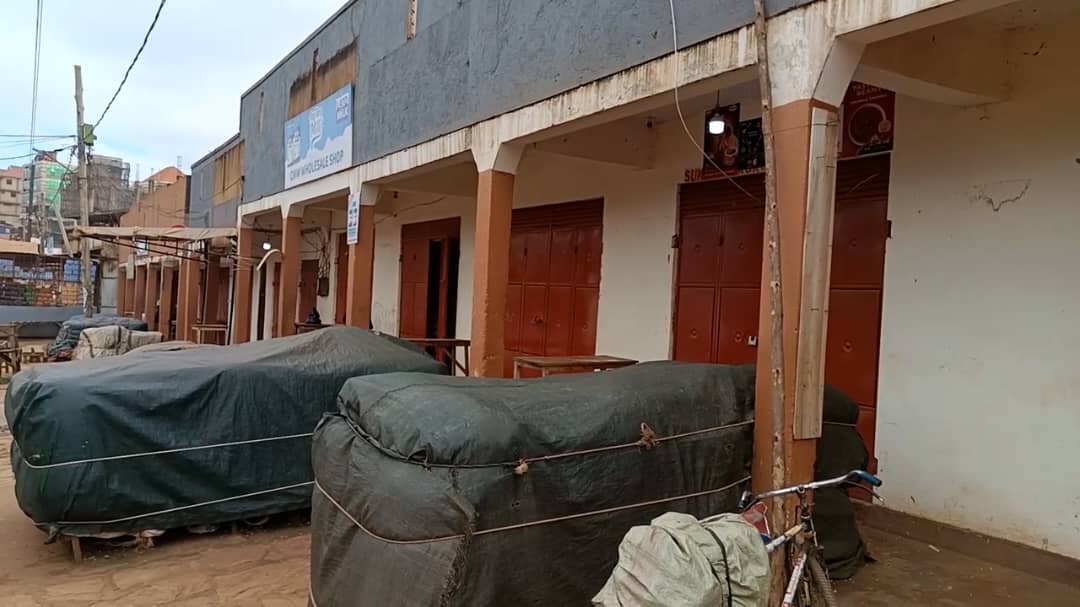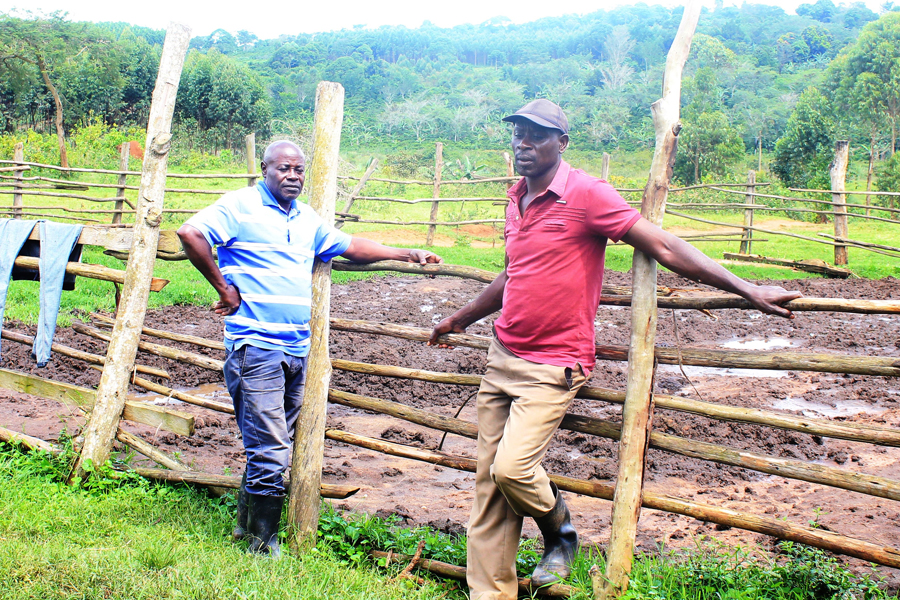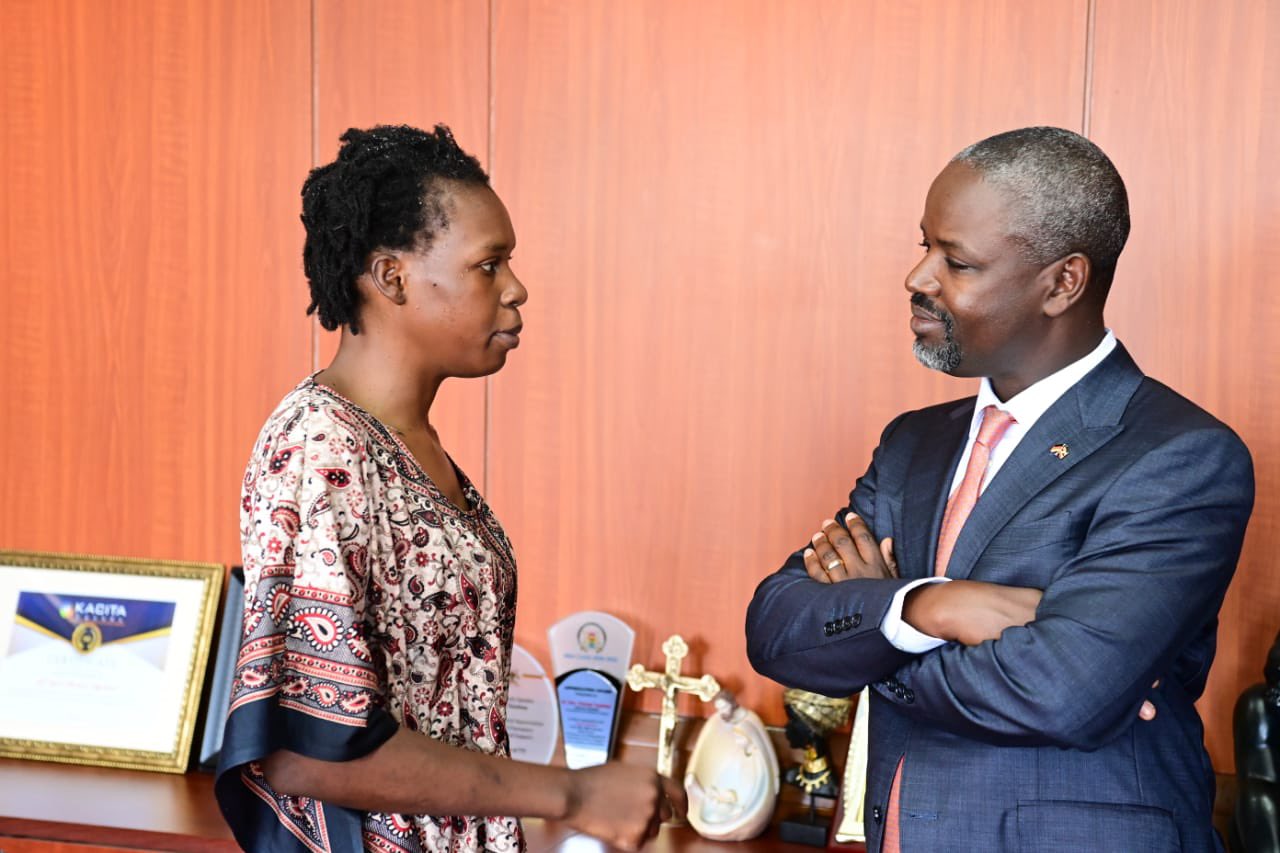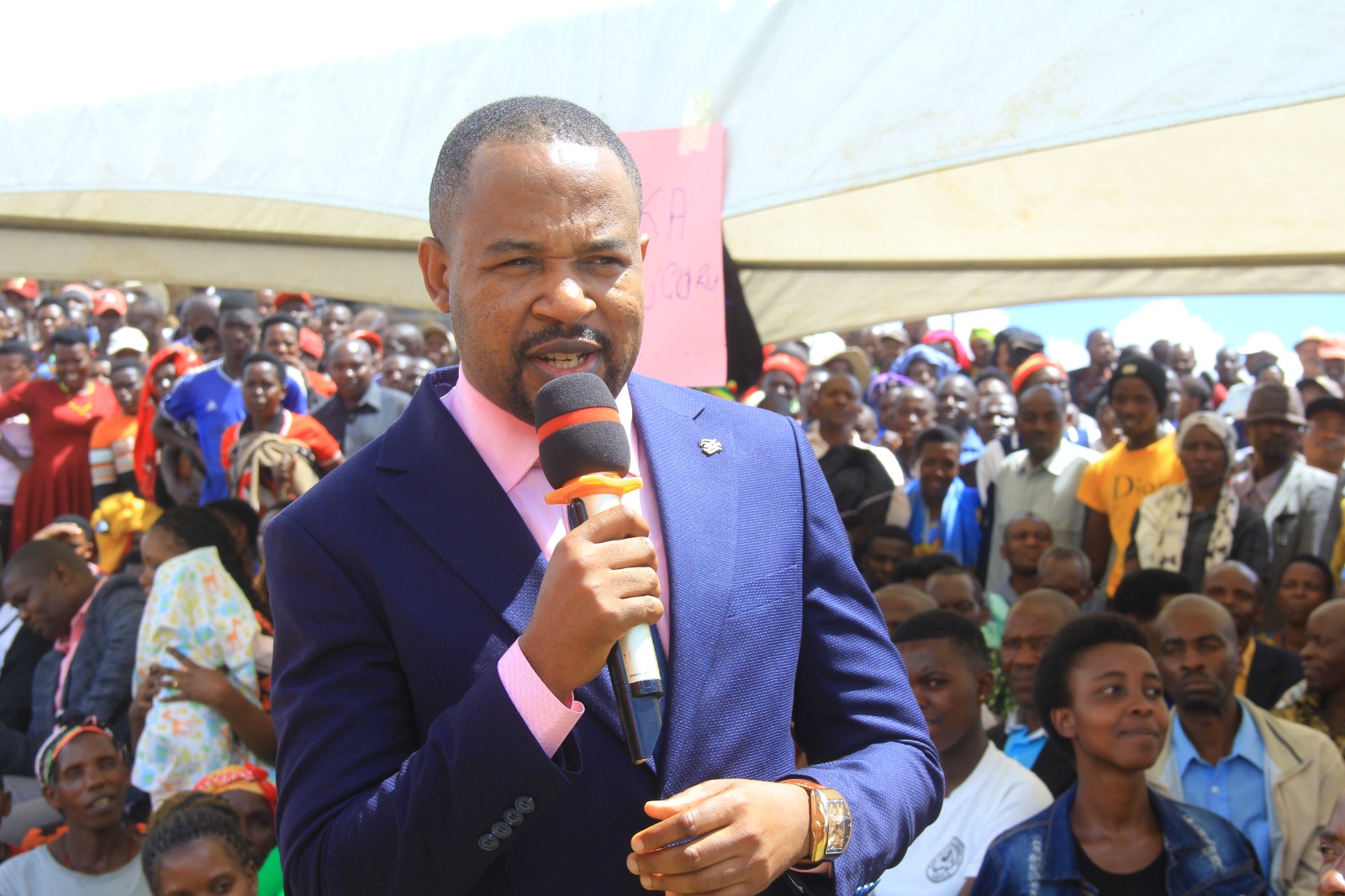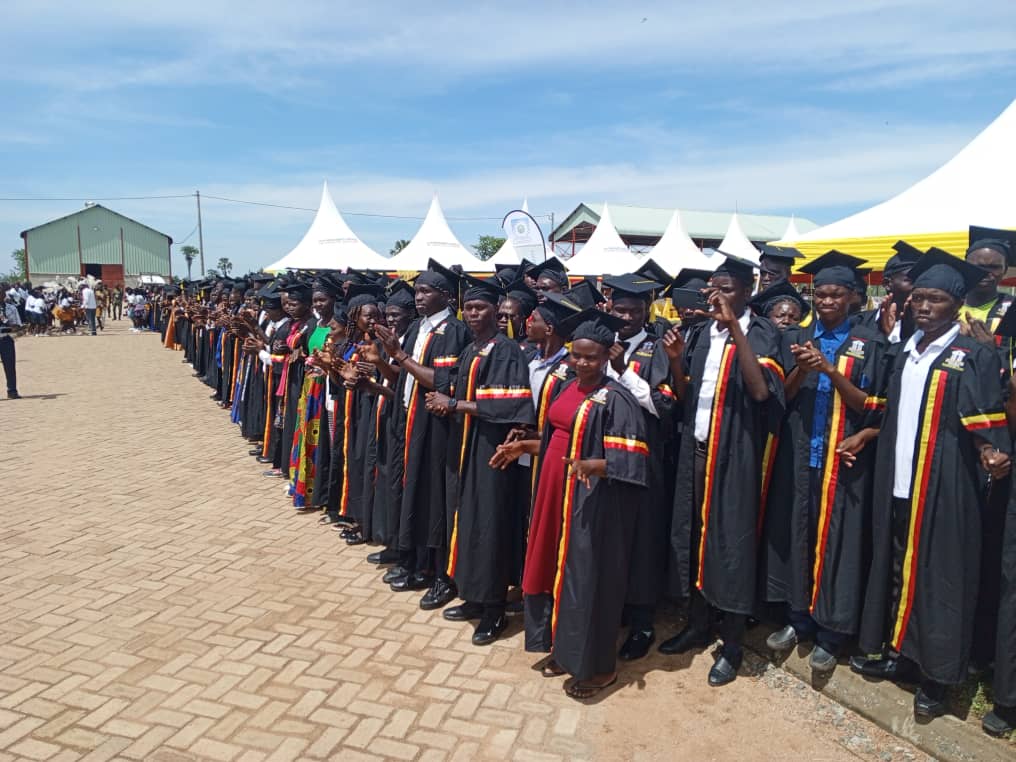Soberness in Grief: The sad loss of late Jacob Oulanya should re- ignite focus on our health system as an urgent national priority
No one can under-estimate the loss that this country has suffered in the death of the late Rt. Hon. Jacob L’okori Oulanya. We have lost this firebrand, articulate and eloquent debater who had risen to the highest office of Speaker to our national assembly. We condole with his family and the entire nation for this tragic loss.
It has already been clarified by government that the late Jacob Oulanya died of cancer. It was also clarified that he had been battling with cancer for some years and that the situation simply deteriorated as years went by. Now, this is the sad part of the story of the life of our Speaker because had the cancer been detected and adequately treated at its early stage, probably we would still be having Jacob Oulanya today. It is also a fact that he is not the only high profile person in the country that has had to succumb to the monster of cancer. The Kyabazinga of Busoga, the late, HRH Wako Muloki succumbed to thyroid cancer in September 2008. The demise came after he had visited a specialized medical treatment facility in Italy twice. However, the assessment of the doctors had revealed that he went to Italy rather late when the cancer had spread beyond a manageable stage. I am sure that many Ugandans with relatives who have been victims of this monster must be having even more chilling testimonies. But there are also those that have very encouraging and moving accounts on how the early diagnosis and detection helped them beat the diseases.
It therefore follows that the key weapon in our health armory as a country to be able to fight off this disease which has become a pandemic is to have appropriate capacity to carry out proper diagnosis at its very early stages. Without efficient diagnosis, we may be as a country heading for even worse times where we shall continue to lose our very best in a very untimely and tragic manner like what has happened to Jacob Oulanya, Governor Mutebile, Daudi Magezi, Gen. Pecos Kutesa, Mrs. Jennifer Kutesa, to mention but a few.These Ugandans and many others have died of cancer and in hospitals outside Uganda. This trend shouldn’t be taken as normal. There is no longer a justifiable reason why our high profile government people continue to die in hospitals abroad. As a country we don’t need to be complacent about the deaths of our very fine individuals that are happening yet it could have been either avoided or delayed.
Records have it that in the 1960s and early 70s; Mulago Medical Hospital was a leading medical research and diagnostic center internationally for Cancer. Also Mulago Hospital was famed globally as a leading ophthalmological center during that time. We are told of how medical practitioners from as far as the United Kingdom and elsewhere used to refer their eye patients to the ophthalmological specialists that were working and resident in Mulago at the time. Unfortunately, with Idi Amin ascending to power, all these specialists fled the country and spread all over the world. We know of many cancer specialists who were at Mulago heading research and managing the Uganda Cancer Institute (UCI) that ended up in Canada, USA, Australia and Scotland where they later championed the setting up of effective specialized cancer treatment centers in those countries.
When you talk of the medical brains that Uganda has ever had at UCI , you can’t miss out Prof. Charles Mark Lwanga Olweny, Dr. Edward Katongole Mbidde, Dr. John Ziegler and Dr. Ian Magrath. Prof. Charles Olweny took over and ran the institute when all the expatriates at the institute fled the country after Amin expelled the Asians. Later, Prof. Olweny took take up an appointment in 1990 in Canada as a leading Medical Oncologist at St. Boniface General Hospital in Winnipeg, Manitoba where he stayed till his return recently to head the Uganda Marty’s University as its Vice Chancellor. Dr. John Ziegler, the first director of UCI when it was opened in 1967 is currently the Director for Cancer Risk Program at the University of California in San Francisco Comprehensive Cancer Center in the USA. Prof. Ian Magrath, who headed the lymphoma treatment unit at the Uganda Cancer Institute when it was set up and a former director of Lymphoma Treatment Center in the UK, is currently the President and Director of the International Network for Cancer Treatment Research based in Brussels.
So therefore, we can all see that our country and Mulago hospital in particular, at one time was the leader in medical cancer research and treatment not only in sub Saharan Africa but also globally.
Interestingly, Uganda has not only been a leader in the cancer research and diagnosis field only, but is also recognized internationally for her successful handling and treatment of the vicious infectious Ebola disease. Our doctors have won international accolades in this regard. For example our current Minister in the President’s Office in charge of Science and Innovations, Dr. Monica Musenero is an Epidemiologist who became a renowned Ebola specialist. Besides, Uganda as a country and its leadership has been internationally hailed for the wonderful way in which the Covid-19 outbreak was handled. Numerous international and widely read newspapers like the New York Times and the Times Magazine praised Uganda’s leadership in containing the pandemic with very few fatalities. Earlier on, Uganda’s handling and minimizing of the spread of HIV/ AIDs became a major area of study for the world.
The big question before us today is: how can a country that has been a leader and a world authority on various matters of health fail in this era to treat its own people locally within the country?
Although, fortunately, the Uganda Cancer Institute is still around and probably much bigger than it was at its establishment, the fact is that there is a lot that is still desired. For example, it becomes chilling and heart breaking to see that accessing diagnosis and treatment at UCI is a nightmare as the institute seems to be overwhelmed and can’t just cope with the sheer number of patients . Due to the nightmare that the cancerpatients go through in accessing diagnosis, treatment and other corresponding palliative care services at UCI, very many patients simply decide to stay at home and resign their fate to God’s mercy. We all know that as a disease, cancer is not an ailment that one can let to take care of itself. It needs early detection and once detected, early intervention is required. It is a disease where time is of utmost essence.
It is shocking and disheartening that even with this kind of facts about cancer that are known, efforts to equip and enhance our health facilities in order for them to be able to make appropriate and timely interventions have been very minimal and very slow.
For example, the Uganda Cancer Institute still lacks the appropriate modern and efficient diagnostic machine called the Positron Emission Tomography (PET). This is a diagnostic system that would be able to help our cancer doctors at ICU to detect and identify early cancer formations in the body.
Given that we don’t have this diagnostic capacity or technology in the country yet, it becomes the reason why most patients who are eventually flown out of the country are told that their cancer is at an advanced stage which actually poses big medical challenges to not only treat but also even to manage.
It should be worrying to all us but more particularly to the managers of the affairs of this country that apart from the country continuing to lose her best brains to the scourge of cancer, the country continues to lose colossal amounts of money in these treatments abroad.
It doesn’t matter whether it is the State meeting the expenses like in the case of our departed Speaker Jacob Oulanya, Governor Mutebile or an individual paying for him or herself. That amount of money collectively spent on travel and treatment abroad could be galvanized in the effort for the country to secure its own diagnostic and treatment health equipment. The Positron Emission Tomography machine costs around $2million (Shs. 7bn) only and this comes with both CT and MRI scanning and imaging capabilities. Currently, for anyone in Uganda to access such diagnosis, one has to travel to Agha Khan Hospital in Kenya where it is the only hospital in East Africa providing this highly vital diagnostic service.
One needs to note that the cost of the PTE machine of the $2million is nothing compared to what is spent on patients being flown abroad and the cost of diagnosis and treatment.
Moreover, practically all of them are referred abroad when it is too late. Indeed, as soon as they are admitted they die and the country and relatives suffer costs that can easily be avoided if we developed local capacity and acquired technology to handle our patients here in Uganda. We just need to be resolute as a country and start putting our health as an urgent priority.
It doesn’t matter whether you have been already diagnosed with cancer today or not and whether you feel very healthy today and energetic; the reality of life is that we are all potential victims. The equipping of our health facilities shouldn’t be left to the goodwill of voluntary organizations like Rotary Clubs, Lions Clubs, NGOs and a few patriotic MPs/ leaders like how it is currently. Those organizations can come in to only supplement and compliment the government resolute policy of ensuring that our health facilities are adequately equipped.
We need to take note too that apart from cancer that is ravaging our country, big, small, rich, poor, powerful and helpless ones, there is also another killer that is taking away precious lives due to our own complacency. This is the disease of Kidney which normally requires regular and timely intervention of dialysis. There are very many Ugandans right now who need dialysis procedure on a daily basis. Kidney patients tell of horrifying experiences that they have to endure at Nakasero, Mulago, Kiruddu or Kawempe hospitals where they pay Shs. 500,000 each time of visit for a dialysis. These patients travel from all over the country in order to able to reach at the dialysis center by 4 a.m. because one has to endure waiting in cues as one waits for one’s turn. Most patients must undergo dialysis three times a week. This is very excruciating and impoverishing by any standards. Many patients have eventually given up on going for dialysis and the consequence has been death.
There is no reason why Uganda government can’t equip every regional referral hospital with a dialysis machine. The machine costs not more than $8,000 (Shs. 28million). Surely, this is affordable for Uganda. We must spare our people not only the agony they are facing but also save their lives.
Let the unfortunate departure of Speaker Oulanya open the minds of our decision makers to the dire state of our medical facilities and prioritize them for revamping to ensure that no other Ugandan leader or individual dies in a foreign country on account of seeking medical treatment.
As the English saying goes, for every dark cloud, there is silver lining. Let this dark cloud that has engulfed the country with the death of Jacob Oulanya be a silver lining as a wakeup call for us to urgently prioritize our health sector. As the country awaits the promised specialized treatment hospital at Lubowa, let our decision makers urgently consider equipping our UCI and the other health facilities in the country with appropriate modern diagnostic and treatment equipment. We are all potential clients to these facilities. Airlifting leaders and individuals traveling abroad to seek medical attention should be something of the past.
Uganda can do it and yes, we can.
Written by Edward Baliddawa – 26th March 2022



